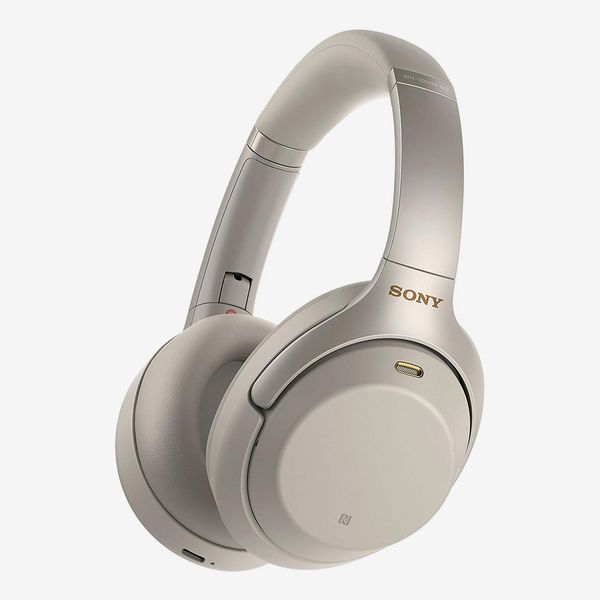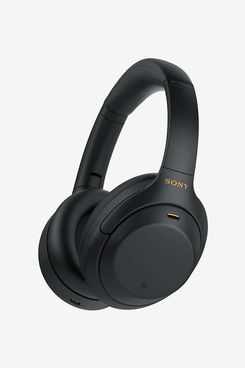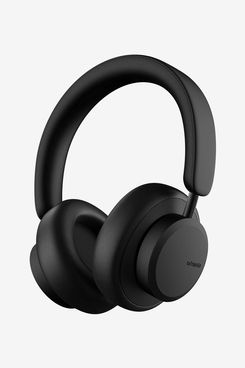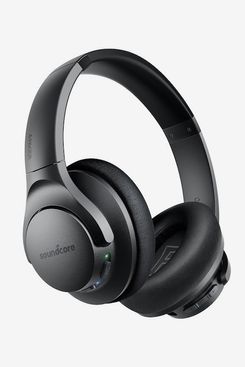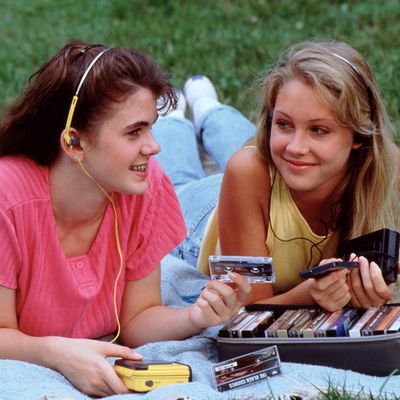
In our advice column, “Ask the Strategist,” we take your most burning shopping questions and scour friends, call up experts, and draw from personal experience to answer them. As always, please email: edit@thestrategist.co.uk with one of your own — we’re here to help.
Dear Strategist UK Editors, I’m looking for a pair of noise-cancelling headphones, specifically a pair for under £200. I’ll be wearing them on the train/bus (and maybe on aeroplanes at some point, too) so I want decent noise-cancelling capabilities, but not something so expensive I’d be uneasy carrying them around with me. Thank you!
So, to begin with, some terminology: Noise-cancelling comes in two forms, active and passive (abbreviated to ANC and PNC). “ANC cancels lower frequency sound waves by producing its own — often referred to as anti-noise,” explains Torben Christiansen, director of Technology at EPOS, an audio and video manufacturer. “ANC headphones constantly monitor and sample ambient noise using tiny built-in microphones. They ‘listen’ to these sounds, and when intrusive and distracting sounds emerge, ANC headsets create a sound exactly opposite to that sound wave and cancel it out. As a result, users only hear audio coming from their headphones — and not anything from outside.”
As a result, ANC headphones are associated with higher prices. When I spoke to Daniel Collier of Oxford Audio Consultants, he told me that “over the last couple years the average headphone purchase has gone from £150 to around £300. We don’t currently stock any head/earphones with noise-cancelling under £200.” Arman Neefi, host of the Are We on Air? podcast told me something similar last year; he can’t live without his £179 Sennheiser HD 25s (he uses them for audio monitoring — they’re popular with DJs). “They’re not noise-cancelling, but that’s not to be expected at this price,” he said.
That doesn’t mean you don’t have several options. First, at the lowest end of the scale, any headphones will offer some degree of what Christiansen calls “noise isolation” due to covering your ears: “They will produce PNC because it physically blocks sound from entering the ear.” The compromise in cheaper models will be in their sound quality or their noise-cancelling effectiveness. Cheaper models boasting noise-cancelling technology may only cover lower frequencies. Christiansen advises looking beyond decibels, which brands use purely for “marketing numbers” and instead to look for the range of frequencies a headset can cancel out, which is measured in hertz (Hz). “You’re looking for higher up than 800Hz,” he says. As an example, “an open office or a busy city street would require damping of above 1000Hz.”
I spent several weeks scouring the Strategist archives (as well as speaking to experts and doing some snooping online myself) to find some options for you. While frequency coverage is hard to find online, I’ve pulled as much information on the sound coverage as I can, including reader reviews and tech specifications provided by the manufacturer.
The best noise-cancelling headphones under £200
Since you specified a price cap on your headphones, this pair by Sony, which we first featured in our look at the best wireless headphones (according to experts) are a good first option. While a lot of cheap headphones can include noise-cancelling technology, they might actually let you down in terms of audio. But according to Obi and Uche Ebele, better known as the production duo Da Beatfreakz, this set really excels in sound quality: “Even though these headphones are made for noise-cancelling, they still receive great quality sound.” These sentiments are echoed by Brian d’Souza (a.k.a. DJ Auntie Flo), the managing director and founder of bespoke-playlist curation platform Open Ear Music. “They provide a spacious, open sound that delivers strong separation between instruments,” he says. “They make vocals sound direct and focused, too, for that ‘in the room with the band’ experience.” Sony say this model features a QN1 chip, which “boast the best noise-cancelling on any of our headphones — they pick up a wider range of frequencies and cancel more noise, especially from ‘daily noise’ you experience when out and about and commuting.”
I also wanted to flag the newest model of the Sony headphones, the XM4s. My U.S. colleague Jordan Bowman, who writes about tech for the Strategist, said these were “some of the best sounding noise-cancelling headphones I’ve ever tried.” The only problem: They’re £70 over your budget. The main difference is that the XM4 can switch between two devices seamlessly, which might not be something you’re looking for.
Another pair Bowman spoke highly of is this pair by Urbanista — he was particularly fond of the button layout, which he described as “responsive and intuitive.” They have a 50-hour battery life, and notably good sound quality. Per Bowman: “I was impressed with the sound, which doesn’t go the typical budget route of trading balance for loudness. The Urbanistas are more subtle and understated. I would recommend these for anyone who’s not ready for a bigger financial commitment. You won’t be disappointed.”
While Bowman didn’t write extensively on the ANC capabilities, I noticed several reviewers say it was so good they were able to sleep in them (including one man who had a blissful snooze on a long-haul flight). One customer compared them to Bose and AKG in terms of quality, which is impressive given the much lower price, while one person said they were on a par with the Sony XM4s.
For £50, you could try these headphones that contributor Jil Chulah Masters said made working in her flat feel like she was ensconced in her own private library. “The Q20s have all the usual benefits of great headphones. They’re easy to use, comfortable, and (for the price) have excellent sound quality. The noise cancelling is even good enough to dull sirens and block rush-hour traffic noise in my bedroom, which overlooks a major London road.”
The headphones are made by Soundcore, which is part of the Anker family (a brand we’ve written about extensively before). While these might lack the sound quality of the more expensive models, I think it’s worth considering depending on your budget. Soundcore say their ANC chip has been designed to tackle extreme high and low frequencies, including cars and aeroplane engines, so it might be perfect for your train/bus journey in the morning, especially if you’re prone to a screech-heavy trip on the Central Line.
The Strategist UK is designed to surface the most useful, expert recommendations for things to buy across the vast e-commerce landscape. Read about who we are and what we do here. Our editors update links when possible, but note that deals can expire and all prices are subject to change.
